Modern Healthcare Technology Blog
.jpg)
Key Takeaways From the 340B Winter Coalition Conference
With new contract pharmacy restrictions recently announced, and more expected to come in the near future, ensuring compliance is more important than ever in the world of 340B. Here are a few takeaways from last week’s 340B Coalition winter conference in San Diego to help you and your 340B program prepare for the changes ahead.
340B Conference – San Diego, CA
Notes by Larry Crowder
More Restrictions
Drug manufacturers are getting increasingly restrictive regarding 340B pricing for contract pharmacy relationships. In just the past few days, Pfizer, GSK and Novartis have announced new restrictions, with GSK’s restrictions applying to all covered entities. Most of these companies are now only going to allow the use of 340B discounts in the contract pharmacy setting at the covered entity’s in-house retail pharmacy. The only exception is if the covered entity does not have an in-house outpatient pharmacy, they may designate one contract pharmacy location. In some of these instances, covered entities must also:
- Submit limited claims data on 340B utilization for such contract pharmacy location
- In case of hospitals, the one contract pharmacy is located within 40 miles of the HRSA registered covered entity parent site.
- According to both Ted Slafsky (340B Report) and Bill von Oehsen (Powers, Pyles, Sutter & Verville) who spoke at a very informative session in San Diego hosted by Verity Solutions, the expectation is that we will see additional manufacturers join in these tighter restrictions and it will get worse before it gets better.
- You can find a comprehensive list of manufacturer restrictions here.
Lawsuit Updates
Manufacturer lawsuits against the federal government’s attempt to stop the restrictions were debated in four different federal district courts throughout the country. The rulings have been split, with two largely in favor of the government and two in favor of manufacturers. They have now been consolidated into three cases that are being debated at the federal appellate court level. The first decision, which occurred in the Third Circuit Court in Philadelphia in late January, was largely favorable to the drug industry. If one of the two remaining courts rules in favor of the government, the Supreme Court is more likely to take up the appeal, which often occurs when there is a split. In the meantime the question is, how far will manufacturers go?
How to Address This Challenge
Since there are 340B covered entities in almost every Congressional district in the country, they can have a great political influence. Covered entities must be active on Capitol Hill in pushing to clarify the statute when it comes the contract pharmacy program. The sentiment from many 340B provider advocates and attendees was that the National Association of Community Health Centers (NACHC) and PhRMA’s recommendations to reform 340B would be highly detrimental to patient care including eliminating the use of 340B discounts for telehealth and significantly restricting patient access to contract pharmacies.
HRSA is asking Congress to revisit HRSA’s legal authority to enforce its interpretation of patient definition and of the contract pharmacy program. 340B provider advocates believe covered entities are in a better position to know who their patient is, and therefore have the ability to determine the patient definition. However, 340B providers need to take into consideration the political realities and the current rules and not be too aggressive in what they consider to be a patient.
NACHC/PhRMA Alliance
As for the NACHC/PhRMA alliance, the general sentiment is that talking is positive, but the proposal goes too far, and would prohibit DSH hospitals from using 340B discounts in telehealth and referral encounters as well as eliminate discounts in the specialty pharmacy setting. The best result would be to instead resolve the matter in Congress, says Ted Slafsky who recently wrote an excellent column on this topic. Concessions will need to be made to resolve these issues.
Duplicate Discounts
There is still a lot of wrestling of how to deal with duplicate discounts. The Inflation Reduction Act has added a duplicate discount concern in a third area, Medicare. Medicaid fee-for-service and managed care are the first two areas. Using a modifier has always been the government’s solution, but many feel it isn’t effective in the 340B world since determining 340B eligibility is largely accomplished though replenishment. The Oregon Medicaid model has been a suggested solution, according to Bill von Oehsen. It is a retrospective model that has 340B providers download and submit 340B claims directly to the state government, rather than using a modifier. There are additional options that 340B provider groups are discussing with the Centers for Medicare & Medicaid Services (CMS) that might work effectively, according to von Oehsen.
Preparing for Transparency Requirements
There is growing effort at the state level to increase oversight over 340B hospitals to ensure that they are being good stewards the program. The legislation would require hospitals to report on how they are using their savings and how much revenue the institutions are taking in from the 340B program. Some of the proposals are viewed by hospital advocates as too prescriptive and burdensome. Nonetheless, there is growing momentum to address the matter at both the state and federal level, said Slafsky. Grantees are already subjected to some of these requirements. Hospitals should study the grantee standards more closely because the same standards could also apply to hospitals down the road, says Slafsky and von Oehsen.
Larry Crowder, VP, 340B Solutions
Cervey, LLC
Follow us to stay tuned for upcoming webinar announcements:
Contact Cervey for a demo of our 340B suite of web-based products that help 340B-eligible healthcare providers with three of their most pressing 340B needs: maximizing savings, ensuring compliance, and optimizing the performance of their contract pharmacies.


